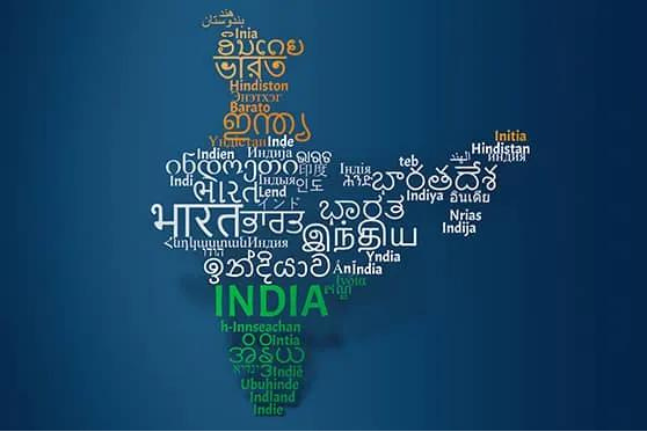India is a country of extraordinary linguistic diversity, with 22 official languages and hundreds of regional dialects. This rich tapestry of languages is not only a reflection of India’s cultural heritage but a central factor in the country’s social fabric. As essential as technology is in modern society, however, it has a tendency to homogenize in the name of efficiency. While efficiency matters, so does culture, and the preservation of language is central to our identities.
With varied identities and perspectives being central to innovation, preserving languages in the face of technological standardization is essential. The development of AI technologies such as speech recognition, voice assistants, and language translation systems need to cater to the linguistic needs of all Indians. In this article, we’ll look at how effective voice data collection is central to the development of healthy AI technologies, digital inclusion, and the preservation of Indian heritage.
Challenges in collecting voice data for Indian languages
Voice data is a technological backbone, providing the necessary input for AI models to learn and adapt to different languages and dialects. However, the reality is that many Indian languages are underrepresented in AI datasets, leading to a severe digital divide. For millions of Indians who speak these languages, the benefits of AI-driven technologies simply remain out of reach.
Collecting voice data for these languages, however, is fraught with problems. Most Indian languages are classified as low-resource languages, meaning there is little to no existing speech data available. This lack of data is a major bottleneck in the development of voice-based AI technologies for these sections of the population.
Traditional methods of data collection, such as studio recordings and physical data collection drives, have proven to be resource-intensive, expensive, and often yield limited results. In addition, the data collection process is further challenged by the intricate nature of Indian languages, characterized by their diverse dialects and regional variations. Capturing the full range of linguistic diversity within a single language requires extensive effort and resources, making it challenging to build comprehensive datasets.
For voice-based AI systems, the quality of the data directly impacts the accuracy and effectiveness of the final product. Even if an AI is able to understand a language’s basic grammar, poor-quality data can omit essential nuances, resulting in biased or inaccurate responses. In the context of Indian languages, where linguistic diversity is vast, collecting high-quality data is a prime goal.
The SoftAge approach
Collecting voice data is much more than just a technical task—it involves understanding the cultural and linguistic subtleties that are unique to each community. At SoftAge AI, we’re engaging directly with local communities, guaranteeing that the data collected is both accurate and representative of the actual linguistic landscape—a grassroots approach that delivers more authentic and diverse data collection.
Building the right tools for the job
To maximize the efficiency and accuracy of voice data collection, SoftAge AI has developed specialized tools and platforms designed to handle the complexities of collecting and processing voice data in multiple languages and dialects.
User-friendly and accessible, our tools allow even those with limited technical knowledge to participate in the data collection process. This is particularly important in a country like India, where digital literacy varies widely across regions. Keeping tools accessible means that data collection isn’t limited to a small group of individuals and is a truly inclusive process that reaches all corners of the country.
Ethical data collection practices
During our quest to build comprehensive AI datasets, SoftAge AI is careful to maintain the highest ethical standards at all times. More than just a legal requirement, it’s a moral obligation, especially when dealing with vulnerable or underrepresented communities. We place a strong emphasis on informed consent, so that all participants in the data collection process are fully aware of how their data will be used and have given their explicit permission.
Data privacy is another foundation of our operations. We focus heavily on safeguarding the personal information of all participants, making sure the data collected is stored securely and used only for its intended purpose—a commitment to privacy that builds trust with the communities involved in the process.
Beyond this, we also offer fair compensation. While the promise of a more inclusive AI future is the ultimate reward, that’s still a way off, and participants need to be fairly compensated now for their time and effort.
SoftAge AI: Opening doors for every Indian culture

As India continues its journey toward digital transformation, stopping underrepresented languages from falling by the wayside is a key concern. While many might argue that certain cultures may need to be ‘passed over’ in the name of efficiency, what we stand to lose from that in terms of culture and identity is profound. AI may very well improve how society works and communicates, but if the price is everyone sounding like the same character from the same TV show, is that really where we want to be? The voice data collection that SoftAge AI is pursuing will not only make India’s digital transformation accessible to all but preserve the varied cultures and perspectives that define the country.
About SoftAge AI
SoftAge AI specializes in data management and AI-driven solutions, with a strong focus on linguistic diversity. Leveraging its extensive experience and innovative approaches, SoftAge AI is advancing digital transformation in India while preserving its rich cultural and linguistic heritage.



